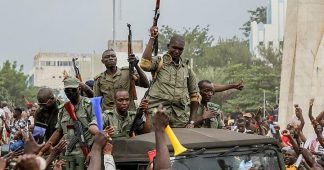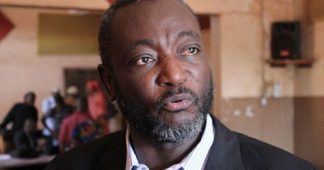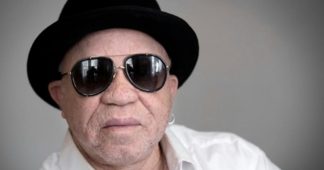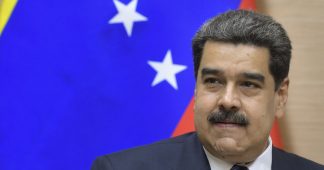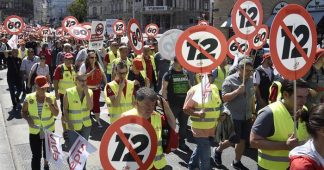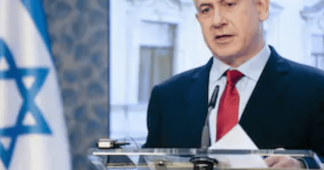Last week’s coup in Mali came after weeks of protest against an unpopular, autocratic ruler, but the intentions of the junta leaders remain unclear. The country now badly needs to address deep-rooted problems of the Malian state that have been neglected for much too long.
By Gregory Mann
Aug. 25, 2020
Mali’s president, Ibrahim Boubacar Keïta (IBK), reelected two years ago, is resigning. “Do I really have a choice?” he asks the camera, or the soldiers around him. Another clip, not broadcast, shows IBK in the same chair, without a mask, eyes brimming and lips quivering.
Last week’s coup d’état in Mali might have been the most foreseeable coup in years, but it’s still amazing what a few men with assault rifles and SUVs can accomplish in West African politics. Tens of thousands of Malians had been in the streets of the capital, Bamako, on and off since Ramadan ended in May, to little avail.
They were protesting over rigged legislative elections in April, but more broadly against the venality and corruption of the Keïta regime, along with its failure to contain an exploding set of overlapping conflicts in the rural center and north of this vast, difficult country.
Mali’s Protest Movement
In early July, a surge of popular protest brought the largest crowds yet out into the streets following Friday prayer. After the rally and the speeches, things got heated. The National Assembly was sacked, the national broadcaster ransacked. Security forces, including anti-terrorist commandos, patrolled parts of the city. They shot eleven people dead.
One of the country’s most respected and influential religious leaders, Mahmoud Dicko, delivered the funeral prayers at his mosque. The movement he championed, known as the M5-RFP, now had martyrs, but no clear message. “IBK Out” read the signs in the streets, and some members of the broad coalition demanded just that.
Dicko hesitated. Asking for the resignation of the president may have seemed to be a step too far, and the imam is not a politician. He had, however, decisively turned his back on the septuagenarian president, who had curried but lost his favor.
While Dicko emerged at the center of the tumultuous coalition, the louder voices in the street — the battle-scarred veterans of the revolutionary student movement of the 1990s, the anti-globalization activists, and the thousands and thousands of young men — wanted IBK gone.
IBK’s Downfall
Having worked for decades to win a crushing electoral victory in 2013, and having been reelected only two years ago, IBK stood fast. Shuttle diplomacy led by the former Nigerian president Goodluck Jonathan produced some minor concessions but would have left the regime largely intact. IBK looked determined to ride out the storm, but it was hard to imagine he could stay in office until the end of his term in 2023.
Ultimately, it was a small group of military officers that toppled the president, arresting him; his prime minister, Boubou Cissé; his controversial son, Karim; several ministers; and some of their own, including Mali’s director of intelligence, General Ibrahim Dahirou Dembélé. IBK asked that no blood be shed. Amid the scenes of soldiers with rifles and flak jackets, dozens of boys took a plunge in Karim’s swimming pool.
Shortly thereafter, Dicko said he was returning to the life of prayer. As the dust settled, the new junta’s spokesman, Colonel-Major Ismaël Wagué, stated that the National Committee for the Salvation of the People (CNSP) had “no link at all with the M5 [the civilian opposition]. None at all.”
By the time Friday came, however, Wagué and his comrades were celebrating their good fortune at a massive rally staged by the M5-RFP at the Place de l’Indépendance, where imam Dicko spoke.
What Kind of Coup?
So, what kind of coup is this? The ratiocinations make good reading. “It’s not a coup,” says Wagué, echoing what several other Malian political figures have argued. “The constitutional order has not been broken.”
The US State Department and the American envoy for the Sahel, J. Peter Pham, were inclined to agree. Coups, legally, have consequences for the provision of American assistance. With a counterterrorism campaign active in Mali and several of its neighbors in the region known as the Sahel, neither the United States nor France — which has five thousand troops engaged in counterterrorism operations on Malian soil — have been eager to make that designation.
Even so, the Pentagon has formally suspended cooperation with the Malian army, which is no small thing: the United States holds annual joint exercises involving Mali and its neighbors, and much of the Malian officer corps — including leading figures from the coups of 2012 and 2020 — have had foreign training. In a country that relies on migrants’ remittances and outside aid to try to cover the gaps in a very frayed social safety net, designating last week’s events as a coup could have very real consequences.
Already, both banks and international borders have been closed, and donors may cool their attitude or withdraw altogether. The effects of this could play out over the next few weeks or months, unless there are concrete steps back to civilian rule. The clock is ticking.
Deferred Challenges
Mali has been here before, and not so long ago. In 2012, in the wake of the NATO intervention in Libya, well-armed and well-financed terrorist gangs took refuge in the Malian Sahara. In fleeting alliance with northern separatists, they soon chased the Malian army from much of the nation’s thinly populated north.
A coup in Bamako sparked a near-total collapse of the state: Western aid and a 2013 French-led military intervention shored it up. A rapid restoration of civilian rule to a transitional government allowed diplomatic and military aid to flow, but it also privileged a quick repair of the Malian state over a longer-term restoration.
That long season of crisis brought many questions to the fore of Malian political life: in a vast country with poor infrastructure, how should Bamako relate to the distant regions? Was the de facto secession of the northern, Saharan region a unique circumstance, or a prelude to some revised form of federation or confederation? Was too much power concentrated in the presidency? If a democratic transition of the 1990s had only deepened inequality, what could be done to correct it, and to rein in widespread corruption? What shared identity could serve as the basis of the Malian nation?
Those questions were set aside in haste, in order to get the state back on its feet. But things were different then. Mali had fallen very quickly from democracy to emergency, and the stakes were high all around. Meanwhile, the coup itself had shown all the signs of improvisation.
It began when a mutiny spun out of control and the president fled. Junior officers and NCOs then stepped into the vacuum, claiming a power they could not hold. The junta of 2012 had no plan, and while many saw them as heroes, they were unprepared to deal with diplomatic pressure for a return to civilian rule.
Regional Response
The authors of last week’s events are a different breed. They are senior officers from across different branches of the military. Several have been active in counterterrorist operations in the North and center, operations in which an aggrieved army has consistently been losing ground. As a group, they appear to be better prepared to deal with their neighbors, and more attuned to what the diplomatic community might demand of them, than the leadership of Mali’s last coup.
They will need to be. The Economic Community of West African States (ECOWAS) has been neck-deep in Mali’s political crisis for weeks already, but with little to show for it. Under the leadership of Nigeria’s Goodluck Jonathan, early attempts at negotiating between IBK and the M5-RF produced feeble results and failed to quiet the protests. ECOWAS is still not ready to condone a coup, however, and this may be partly due to the broader regional context.
ECOWAS has threatened to impose severe sanctions, which, for a landlocked country, is no small matter. The elderly presidents of two of Mali’s neighbors, Guinea and Côte d’Ivoire, each appear intent on seeking third terms in office later this year, in the face of significant popular opposition. They have reason to be concerned that if they cannot “punish” the coup plotters in Mali, thereby setting an example, they could also find themselves pronouncing a resignation speech into a camera, asking, “Do I really have a choice?”
In Bamako, distrust of ECOWAS runs deep, and not just because it is an association of heads of state. Nor is it due entirely to the proud nationalism of many Malians. It’s also part of a broader distrust, even contempt, for the “political class,” the technocrats and managers who seem to cycle in and out of government posts and regional or continental organizations, who live in large villas and are shuttled around in enormous SUVs, and whose children are educated abroad.
The most prominent of IBK’s political opponents, Soumaïla Cissé, is missing, having been kidnapped in the run-up to the legislative elections. The fact that this is only a minor element of the story is indicative of the mess the country is in.
Searching for Sankara
It’s partly this disenchantment with the politicians — Cissé included — that makes apparently virtuous figures like imam Dicko or the members of the junta so welcome on the political scene. Dicko does not seek public office, and he wields his considerable influence carefully. He has come to represent the moral authority of the M5-RFP movement, but it is a very broad coalition, including youth activists, African socialists, and trade unions.
Among its leadership, some — like the firebrand ex–student leader Dr Oumar Mariko, or the filmmaker Cheikh Oumar Sissoko — have a political perspective informed by the anti-globalization movement and the particular forms of African socialism that predated it. Among them, there are precedents for looking to the military when civilians have failed.
The exemplar of that tradition is Thomas Sankara, who governed neighboring Burkina Faso in the mid-1980s but who was killed before he aged. Perhaps seeing the ghost of Sankara in 2012, many Malians welcomed the coup as salvation from the corrupt political class; this moment is similar. This vision — of the soldiers as saviors — might let them off too easily, however.
WhatsApp is alive with euphoric M5-RFP supporters insisting that the popular revolution has arrived. But it’s much too soon to know, and soldiers don’t tend to be revolutionaries. Coups might look like popular revolutions or even coincide with them, and people pushing for such revolutions might hail the arrival of young men in khaki and olive drab on the political scene. However, they are clearly not the same thing.
We don’t have to imagine that every young officer who arrests the president is the next Thomas Sankara. For every socialist hero like Sankara, there is more than one Moussa Dadis Camara, a coup leader who terrorized Guinea a decade ago. Soldiers stage coups for their own reasons.
Breaking the Cycle
The repeated and painful failures of the Malian army since 2012 have often been attributed to the corruption and indifference of civilian leaders — that is, to a passive form of treachery. Soldiers have found themselves consistently outgunned, and without the support from Bamako (or from foreign anti-terrorist forces) that they hoped for. In Mali, the army is held up as a virtuous institution, whose men and women have been betrayed by corrupt politicians.
There’s good evidence for this — at least so far as corruption is concerned — in the Keïta regime. But the army, too, is a complex beast (and not all of its officers supported the coup: at least three of the highest-ranking officers were arrested). In the center of the country, ethnic militias have the support of senior officers in the military, it is alleged. These militias, not the jihadists, are held responsible for the bloodletting that civilians have endured in the region over the last year or more.
During this time, Mali’s war has devolved, slowly, into a dirty war that does not speak its name, one in which civilians are the target and in which terrorism is not the sole purview of jihadists. So, in a strange and surprising twist, seizing power from a corrupt regime that was also contested by civilians allows one group of officers and their men — at least in Bamako — to look like populists and saviors. Meanwhile, others — in the center of the country — have fueled what threatens to become a self-perpetuating cycle of revenge, and still others abused their power to profit from the trafficking — particularly narcotics — that is so lucrative and so corrosive in many West African states.
Meanwhile, France continues to lead the EU nations in their anti-terrorism campaign across the Sahel, and the UN peacekeeping mission — the deadliest UN deployment in the world — continues to grind its way in circles around northern Mali. Perhaps there is other work for soldiers to do, work other than governing; or maybe the coup leaders are right, and the fish was indeed rotting from the head.
Old Guard or New Direction?
Either way, the pressure for a rapid “transition” — or at least a road map toward one — will be intense, as neighboring countries approach their own electoral seasons. Still, the challenges that face Mali are profound. They will demand careful, committed dialogue and exchange, on a scale the country has not attempted since 1991, when the current constitution was written.
Many of the leaders of the M5-RFP are holdovers from that time: political gadflies, backbenchers, and failed presidential candidates from the three decades since. While a photograph of the M5-RFP leadership looks like a class reunion, the fresh, smooth faces of the junta’s leadership highlight their relative youth. Any real transition will need to allow time for newer, younger voices to emerge from outside the ranks of the military.
Léopold Sédar Senghor, founding president of neighboring Senegal, once declared that “independence cannot be improvised.” Perhaps the same is true of democracy. Having brought IBK’s power to an early end, Mali’s junta might do well to maintain the momentum toward structural change that they have unleashed — which is the base of their popular support — while slowing the transition just enough to allow time and space for the consultation, conciliation, and dialogue on which many Malians pride themselves, but which has so recently and spectacularly failed.
